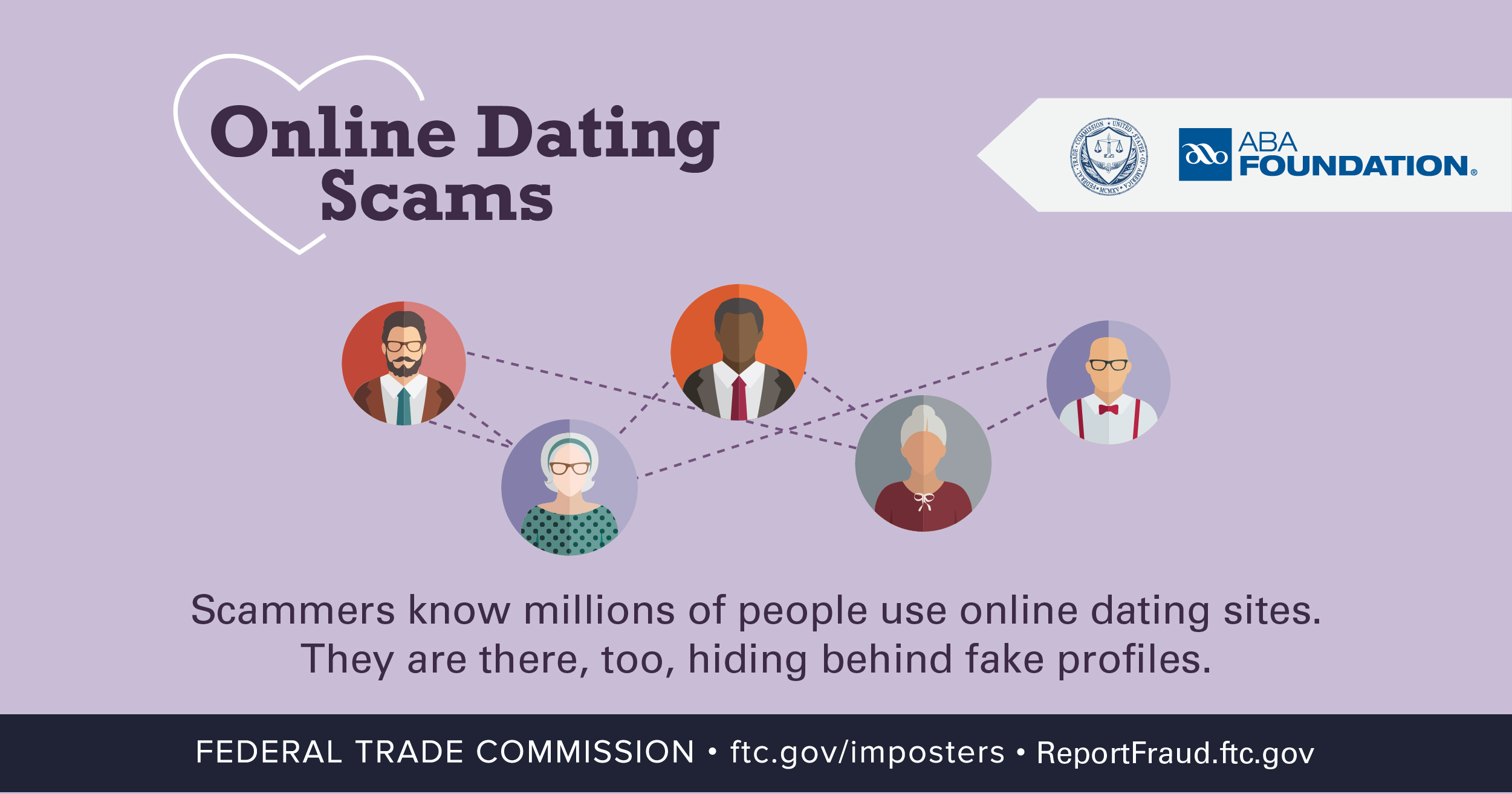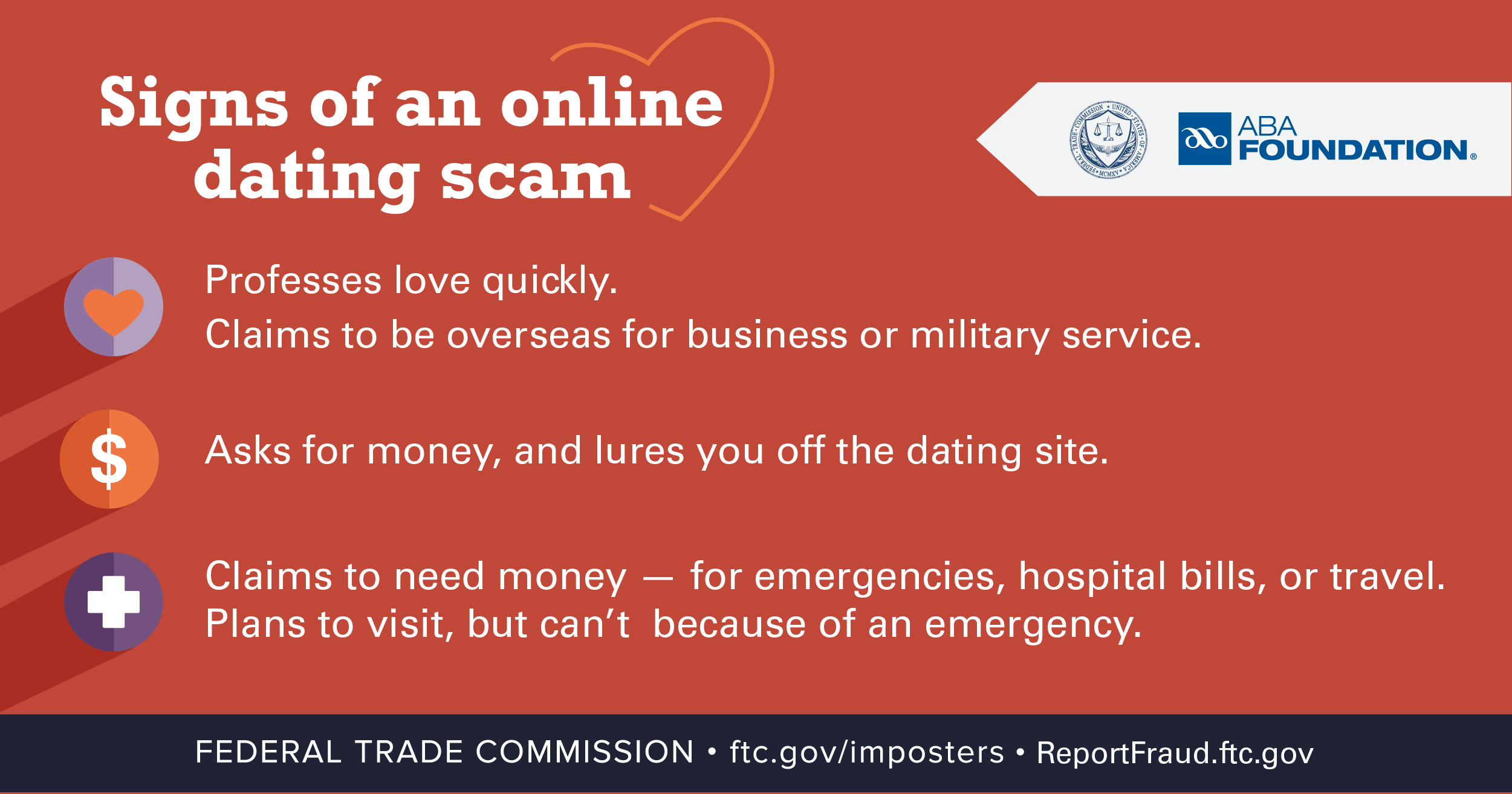You’ve heard of romance scams. But do you know how they happen? They start when scammers create fake profiles on dating apps or social media. Then, those scammers strike up a relationship with their targets and work to build trust. Sometime later, they make up a story and ask for money.
So how do you spot a romance scammer? Here are some things to watch for:
- Any love interest who asks you to give them money on a gift card, by money transfer, or cryptocurrency is a scammer. Period.
- Romance scammers profess love quickly. They might say they can’t meet you because they’re overseas for business or military service — but, during the pandemic, they might just say they’re locked down.
- Romance scammers might try to lure you off the dating site.
- Scammers will find a reason to ask you for money — maybe to buy a phone card to keep chatting, maybe to help with a “medical emergency,” or maybe something else.
- Romance scammers sometimes build interesting dating profiles. But try a reverse-image search of the profile pictures. Are any photos associated with another name, or with details that don’t match up? That’s just more proof that it’s a scam.
If you’ve spotted any of these signs of a scam, tell the online dating app or social media platform right away. And then tell the FTC at ReportFraud.ftc.gov
Share these graphics with your family, friends, and social networks. You probably know someone who could use the reminder.



